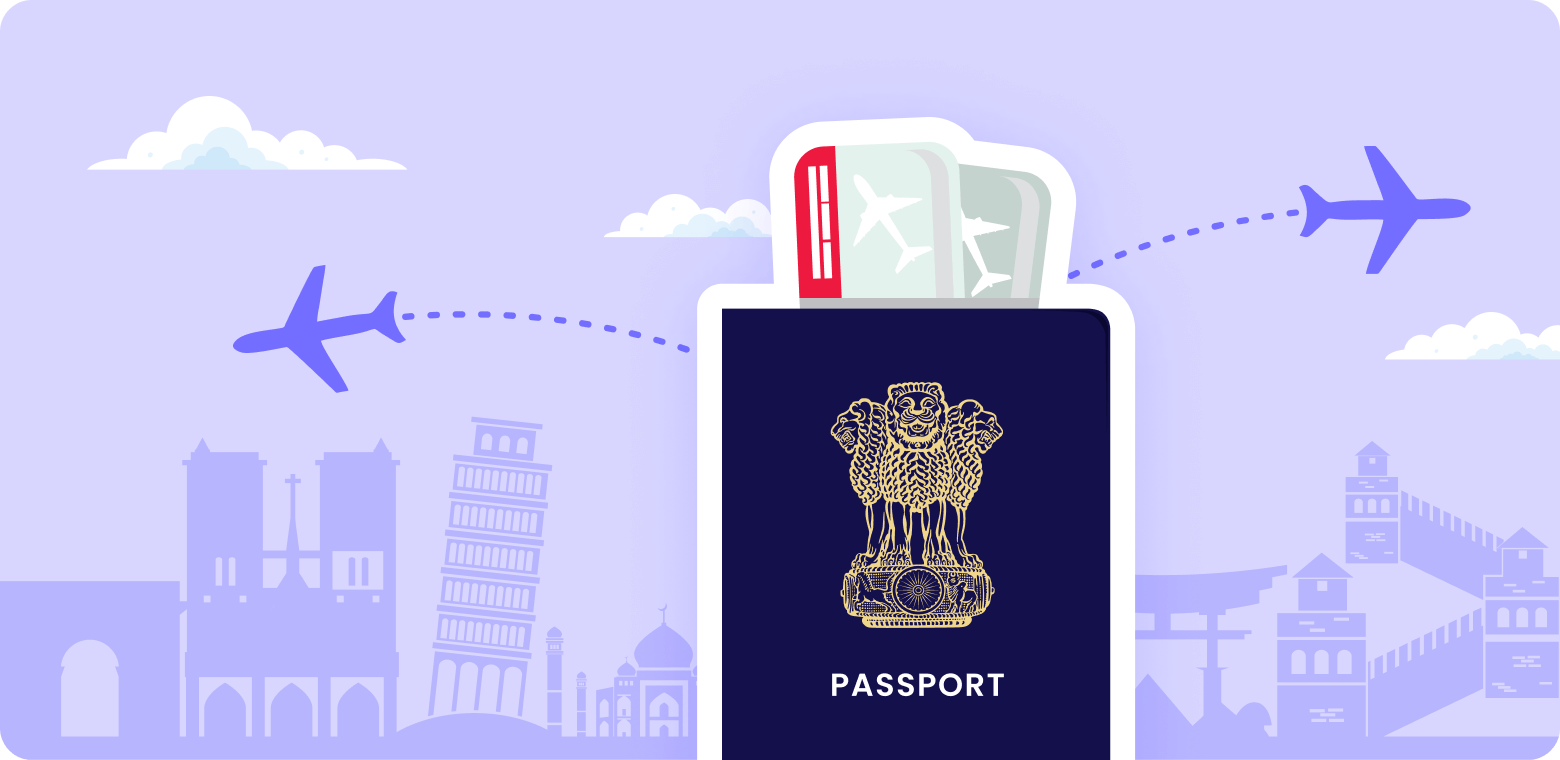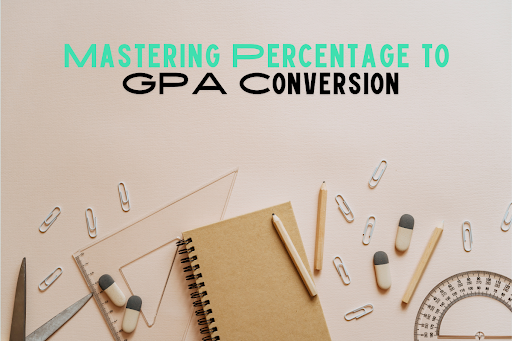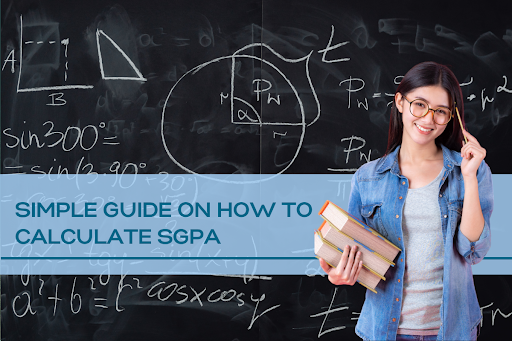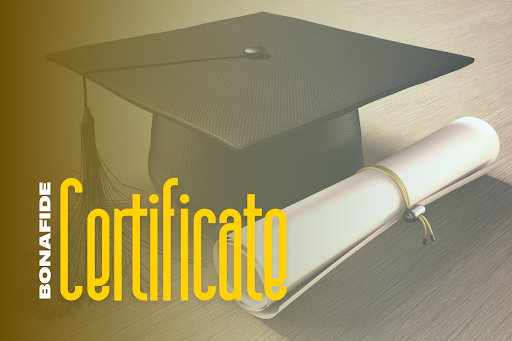Are you dreaming of windmills, canals, and world-class education? The Netherlands, a country synonymous with innovation and cosy cafes, could be your next study-abroad destination!
The Netherlands boasts an excellent educational system fostered by a progressive approach and renowned for its high quality. The country offers a wide range of programs taught in English, making it accessible to students from around the world.

Excel in IELTS with India’s Top Online Coaching
Leap has helped more than 1 Lakh students achieve 7+ IELTS band.
The Dutch higher education institutions consistently rank among the top in global university rankings, ensuring students receive an excellent education that is recognised worldwide.
Additionally, the University World News said over 123,000 international students were enrolled in Dutch higher education during the 2022-2023 academic year.
So before you pack your bags and brush up on your Dutch, it’s crucial to secure the Netherlands Student Visa.
The application process for your visa depends on your nationality and the duration of your intended studies.
In this guide, we will help you with a roadmap for efficiently navigating the visa application process, ensuring a smooth transition to your studies in the Netherlands.
Key Highlights
| Feature | Description |
| Visa Requirements | Requirement of residence permit (VVR) for stays exceeding 90 days. |
| Documents Required | -Valid passport -Acceptance letter -Proof of finance -Health insurance -Academic transcripts |
| Types of Student Visas | -Higher education -Secondary/vocational courses -Short-stay study programs. |
| Working While Studying | Non-EU/EEA students can work part-time during the academic year and full-time during holidays. |
| Post-Study Options | Stay 1 year to seek employment or start a business. |
Overview of the Dutch Education System
Numerous colleges routinely rank among the top in numerous rankings, demonstrating how well-regarded the Dutch educational system is worldwide.
Institutions such as Delft University of Technology, University of Amsterdam, and Wageningen University & Research are renowned for their academic excellence and research contributions across various disciplines.
Dutch universities regularly feature in prestigious international rankings such as the QS World University Rankings, Times Higher Education World University Rankings, and Academic Ranking of World Universities (ARWU).
These rankings assess universities based on academic reputation, research output, faculty expertise, and international outlook, highlighting the Netherlands’ position as a leading destination for higher education.
Below are some universities from netherlands that rank amongst the top 210 universities worldwide.
| University Name | QS Ranking 2024 |
| Delft University of Technology | 47 |
| University of Amsterdam | 207 |
| Wageningen University & Research | 160 |
| Erasmus University Rotterdam | 176 |
| Utrecht University | 138 |
The Netherlands also prides itself on its multicultural society, reflected in its education system
International students studying in the Netherlands benefit from interacting with peers from diverse cultural backgrounds, fostering cross-cultural understanding and collaboration.
Moreover, many universities actively promote cultural exchange through initiatives such as international student clubs, language exchange programs, and intercultural events, creating a supportive and inclusive learning environment for all students.

Excel in IELTS with India’s Top Online Coaching
Leap has helped more than 1 Lakh students achieve 7+ IELTS band.

Confused About the Visa Application Process?
Get guided assistance when applying for visa from our expert counsellors.
Netherlands Student Visa Requirements for Indians
The Netherlands has different requirements for student visas based on the applicant’s nationality and planned length of stay.
Generally, non-EU/EEA students must get a student visa or residence permit to study in the Netherlands.
- Non-EU/EEA Nationals: Non-EU/EEA nationals must apply for a Netherlands student visa (MVV) and a residence permit (VVR) to study for over 90 days.
The application process typically involves providing proof of acceptance from a recognised educational institution with sufficient financial means to cover living expenses and health insurance coverage.
Additionally, depending on their country of origin, students may need to undergo a tuberculosis test and/or provide a police clearance certificate.
- Duration of Stay: The duration of the student visa and residence permit depends on the length of the study program.
Typically, students receive a residence permit for the duration of their program plus an additional three months upon completion of their studies for job-seeking purposes.
Students must adhere to the visa regulations and renewal procedures to maintain legal status in the Netherlands throughout their stay.
Here is an overview.
| Requirement | Description |
| Application Form | Completed and signed the Netherlands Student Visa application form. |
| Valid Passport | A valid passport with at least two blank pages and three months after your anticipated stay in the Netherlands is required. |
| Passport-Size Photographs | Two recent colour passport-sized photographs |
| Letter of Acceptance | Original acceptance letter from a recognised educational institution in the Netherlands. |
| Proof of Financial Means | Documentation to show sufficient funds to cover living expenses (typically around ₹ 77,540.49 monthly). |
| Travel and Health Insurance | Travel insurance with at least ₹ 27,00,000 in coverage. |
| Academic Transcripts | Certified copies of your academic transcripts from previous educational institutions. |
| Tuberculosis Test | Test results taken within three months of your arrival in the Netherlands (may be required). |
| Biometric Information | Submit fingerprints and facial photographs (may vary depending on location). |
Additionally, some universities require your English language proficiency test scores. Depending on the university’s requirements, you can opt for IELTS or TOEFL.
Note: If you’re anxious about your IELTS results, our Leap Scholar program can assist you with preparation. Our four-week program, led by India’s top trainers, will help you secure your ideal IELTS band.
Understanding the Need for a Student Visa
Understanding the need for a student visa is essential for international students in the Netherlands, as it determines their eligibility to reside and study there legally.
Explore all countries
Distinction between EU/EFTA and non-EU/EFTA nationals in visa requirements
In the Netherlands, the visa requirements differ for nationals of the EU/EFTA and non-EU/EFTA countries.
| Requirement | EU/EFTA Nationals | Non-EU/EFTA Nationals |
| Visa for Stays Less Than 90 Days | Generally not required | It may be required depending on nationality. |
| Visa for Stays Over 90 Days | Registration with local authorities (residence document may be required for stays exceeding a specific duration) | Student Visa (MVV)Residence Permit (VVR) required |
| Application Process | A simpler process, typically involving registration upon arrival | A more complex process involving application documents, proof of finances, health insurance, and potential additional requirements |
| Freedom of Movement | Have the right to live, work, and study in any EU/EFTA member state | Generally require specific permits to work or study in EU/EFTA member states |
Who needs a Netherlands Student Visa or Residence Permit?
International students planning to study in the Netherlands for a period exceeding 90 days are generally required to obtain a student visa (MVV) and a residence permit (VVR).
This applies to non-EU/EFTA nationals and includes students pursuing bachelor’s, master’s, or doctoral degrees, as well as those participating in exchange programs or vocational courses.
The student visa allows entry into the Netherlands, while the residence permit grants legal permission to reside and study there for the duration of the academic program.
Types of Netherlands Student Visa
The Netherlands student visa are of various types to accommodate different educational pursuits and durations of stay.
Higher education and university course visas: requirements and validity
Requirements: To apply for a student visa for higher education or university courses in the Netherlands, non-EU/EEA individuals must fulfil specific requirements.
These typically include:
- Acceptance: Proof of acceptance from a recognised Dutch higher education institution.
- Financial Means: Demonstrated ability to cover tuition fees and living expenses throughout the program.
- Health Insurance: Acceptable health insurance in the Netherlands.
- Academic Qualifications: Relevant academic qualifications and transcripts per the chosen program’s admission requirements.
Validity: The student visa for higher education is typically valid for the duration of the study program, with the possibility of extension for additional periods if necessary.
Secondary and vocational course visas: additional criteria
Additional Criteria: For secondary education and vocational courses in the Netherlands, students may need to fulfil additional criteria, including:
- Age Restrictions: Some vocational courses may have age restrictions for admission.
- Language Proficiency: Proof of proficiency in the language of instruction, usually Dutch or English, depending on the course.
- Sponsorship: If under 18, students may need a sponsor or guardian residing in the Netherlands.
- Study Plan: A detailed study plan outlining the course of study and educational objectives.
Validity: The validity of the visa for secondary and vocational courses varies based on the duration of the program, typically aligning with the study period.
Short-stay study visa for courses less than 90 days
For short-term study programs lasting less than 90 days, such as language courses or workshops, non-EU/EEA nationals may apply for a short-stay study visa.
Requirements: The requirements for a short-stay study visa may include:
- Enrollment: Proof of enrollment in the short-term course or program.
- Financial Means: Proof of enough funds to cover the cost of the stay in the Netherlands.
- Accommodation: Confirmation of accommodation arrangements during the stay.
Validity: The short-stay study visa is typically granted for the duration of the course, up to a maximum of 90 days.
Intra-EU mobility visa for study across the EU/EFTA area
As part of the EU/EFTA area, the Netherlands participates in the intra-EU mobility scheme, allowing students to study in multiple regional countries under certain conditions.
Requirements: To apply for an intra-EU mobility visa, students must:
- Be enrolled in a higher education institution in one EU/EFTA member state.
- Have a valid residence permit or visa for study in the home country.
- Obtain approval or recognition from both the home institution and the host institution.
Validity: The validity of the intra-EU mobility visa aligns with the duration of the study exchange program or course of study across multiple EU/EFTA countries.
Netherlands Student Visa Eligibility Criteria for Spouses/Partners and Children Under 18
Under certain conditions, international students studying on a Netherlands student visa may be accompanied by their spouse or registered partner, as well as children under the age of 18.
Conditions under which spouse/registered partner and children under 18 can join the student
- Spouse or Registered Partner: An international student’s spouse or registered partner is eligible to join them in the Netherlands if the student meets specific criteria set by the Dutch immigration authorities. This typically includes enrolling in a full-time accredited study program at a recognised educational institution in the Netherlands.
- Children Under 18: Children under 18 of an international student may also be allowed to accompany their parent(s) to the Netherlands. However, they must financially depend on the student and meet any additional requirements specified by Dutch immigration regulations.
Application Process for a Netherlands Student Visa
Obtaining a student residence permit is a crucial step in the application process for non-EU/EEA citizens planning to study in the Netherlands for over three months.
This permit allows students to reside in the country while pursuing their studies legally.
The application process includes several steps and requires fulfilling specific requirements to ensure eligibility for the permit.
Requirement for non-EU/EEA citizens for stays over three months
Non-EU/EEA citizens seeking a student residence permit for stays exceeding three months must meet specific requirements set by the Dutch immigration authorities. These requirements include:
- Proof of Registration: Applicants must provide evidence of acceptance or enrollment from a recognised educational institution in the Netherlands.
- Sufficient Income: Students must show that they have enough funds to cover their living expenses while in the Netherlands.
- Health Insurance: Students should have acceptable health insurance coverage that meets Dutch healthcare standards. This ensures access to medical care and services during their stay.
- Sufficient Study Progress: Students must make satisfactory study progress to maintain their student residence permit. This may include meeting academic requirements and completing coursework within the designated time frame.
Netherlands Student Visa: Steps to Apply
The visa application process for a student residence permit in the Netherlands typically follows these steps:
- Check Requirements: Before applying, students should carefully review the requirements for obtaining a student residence permit on the official website of the Dutch immigration authorities (IND).
This includes ensuring they meet the eligibility criteria and have all necessary documents prepared.
- Submit Application: Students can apply for a residence permit online or in person at a Dutch embassy or consulate in their native country after fulfilling the requirements.
The application should include all necessary paperwork and information, including evidence of acceptance, financial resources, health insurance, and academic advancement.
- Biometric Appointment: Students who apply may need to make an appointment for a biometric assessment at a visa application centre to submit a photocopy of their residency permit and fingerprints.
- Collect MVV/Residence Permit: Once the application is processed and approved, students will receive a long-stay visa (MVV) sticker in their passport, allowing them to enter the Netherlands.
Upon arrival, they must collect their residence permit card from the IND office within two weeks to finalise their legal stay there.
Upon Arrival in the Netherlands
After arriving in the Netherlands, international students must take important steps to ensure a smooth transition and legal compliance.
These include picking up a temporary residence permit, registering with the local authority, and setting up essential services such as healthcare, banking, and utilities.
Necessity to pick up temporary residence permit and register with the local authority
The length of your stay in a particular country and your nationality will determine whether you need to get a temporary residence permit and register with the local government.
Here’s a breakdown:
Non-EU/EEA Nationals:
- Temporary Residence Permit: Typically required for stays exceeding 90 days. This permit allows you to live and study (with limitations) in the country.
- Local Authority Registration: Usually mandatory alongside obtaining the temporary residence permit. Registration helps authorities track residents and grant access to essential services.
Top 3 Tips to Make Your Stay Easy in Netherlands
- Healthcare
International students staying in the Netherlands for more than four months must have Dutch health insurance.
Students can choose from various health insurance providers and plans, so it’s essential to research and select a plan that best suits their needs and budget. Some educational institutions may also offer assistance or guidance in obtaining health insurance.
Upon arrival, students should register with a general practitioner to access primary healthcare services.
- Banking
Opening a Dutch bank account is important for managing finances and making transactions in the Netherlands.
Most banks offer student account packages with benefits such as fee waivers and discounts.
To open a bank account, students will need their passport, BSN, proof of enrollment from their educational institution, and sometimes proof of address.
Online banking and mobile banking apps are widely available, making it convenient to manage finances remotely.
- Utilities
Setting up utilities like electricity, water, and internet can vary depending on the accommodation.
Some student housing may include utilities in the rent, while others require students to independently set up accounts with utility providers.
It’s advisable to inquire with the landlord or housing agency regarding utility arrangements and any necessary steps for activation or registration.
Working While Studying in Netherlands
International students on a Netherlands student visa can work part-time alongside their studies, provided they meet certain conditions and obtain the necessary permits.
Conditions Under Which Students are Allowed to Work
- Non-EU/EEA/Swiss students can work part-time during their studies in the Netherlands under specific conditions.
- Maximum Working Hours: Students can work 16 hours per week during the academic year (September to June). However, they can work full-time (40 hours per week) during the summer months of July and August and during official holidays.
- Employment Restrictions: Students should prioritise their studies and ensure that employment does not interfere with their academic commitments. Certain fields, such as healthcare, may have additional restrictions or requirements.
Specific work permit requirements for non-EU/EEA/Swiss students
- Residence Permit: Non-EU/EEA/Swiss students must have a valid residence permit for study purposes to be eligible to work in the Netherlands.
- Work Permit: Depending on their country of origin and the length of their employment, students might need to apply for a second work permit in addition to the residence permit. Nonetheless, a work permit is usually unnecessary for students from Switzerland or EU/EEA nations to work in the Netherlands.
- Employer Sponsorship: Employers may need to sponsor non-EU/EEA/Swiss students by providing a job offer and supporting documentation for the work permit application process.
- Financial Considerations: Students should be mindful of their financial situation and ensure that part-time work does not jeopardise their ability to meet tuition fees and living expenses.
Post-Study Options
After completing their studies in the Netherlands, international students can extend their stay and pursue career opportunities there.
One of the primary pathways is through the Orientation Year (Zoekjaar) visa, which allows graduates to seek employment or start their own business in the Netherlands.
Options to Stay in the Netherlands After Study: Orientation Year (Zoekjaar) Visa
The purpose of the Orientation Year visa is to help foreign graduates who have completed their studies adjust to the Dutch labour market. It permits qualified graduates to live and work in the Netherlands for one year to look for work or launch a business. During this time, graduates can investigate various employment options because they are not limited to any particular industry or job.
Eligibility Criteria: To qualify for the Orientation Year visa, graduates must have completed a bachelor’s, master’s, or Ph.D. degree from a recognised Dutch higher education institution or a qualifying international institution within the past three years. Additionally, they must have sufficient financial means to support themselves during the orientation year and hold valid health insurance coverage.
This is how Orientation Year (Zoekjaar) Visa can help you:
- Job Search: Graduates can actively use the Orientation Year visa to search for employment opportunities in the Netherlands. Once they secure a job offer that meets the requirements for a work permit, they can transition to a regular work visa or residence permit sponsored by their employer.
- Business Start-up: Alternatively, graduates can use the Orientation Year visa to launch their business venture in the Netherlands. They must meet specific entrepreneurial criteria and demonstrate the viability of their business idea to qualify for a residence permit as self-employed entrepreneurs.
- Pathway to Permanent Residence: Successful integration into the Dutch labour market or entrepreneurial ecosystem during the Orientation Year can open doors to further residency options, such as the Highly Skilled Migrant (HSM) visa or the Dutch-American Friendship Treaty (DAFT) for U.S. citizens, which offer pathways to permanent residence in the Netherlands.
Appealing Visa Decisions
In the Netherlands, if an international student’s visa application or residency permit is denied or disagrees with a decision made by the Immigration and Naturalization Service (IND), they can appeal it through specified procedures.
Below is an overview of the process for appealing IND decisions and further complaint procedures.
Information about appealing IND decisions and further complaint procedures
- Notification of Decision: When the IND decides on a visa application or residency permit, they will send a formal notification letter to the applicant detailing the decision and any reasons for refusal.
- Appeal Period: Upon receiving the decision letter, the applicant typically has a specified period to appeal. The appeal period and procedures may vary depending on the type of visa or permit application and the grounds for refusal.
- Appeal to Administrative Court: The first step in the appeal process involves appealing with the relevant administrative court in the Netherlands. The court will review the IND’s decision and consider any additional evidence or arguments provided by the applicant.
- Legal Representation: Applicants can seek legal representation or assistance from a qualified immigration lawyer or advisor to prepare and present their case during the appeal proceedings.
- Appeal Outcome: The administrative court will review the appeal and issue a judgement either upholding the IND’s decision or overturning it. If the appeal is successful, the court may order the IND to reconsider the application or grant the requested visa or residency permit.
Conclusion
In conclusion, pursuing higher education in the Netherlands presents an opportunity for academic excellence, cultural immersion, and personal development.
As students navigate the intricacies of the visa application process and settle into their new academic and social environments, access to reliable resources and support is paramount.
This guide provides valuable insights into obtaining a student visa, understanding the Dutch education system, and accessing essential services in the Netherlands.
By following the outlined steps and utilising the recommended resources, students can embark on their study abroad journey confidently and clearly.
Need help with the preparation further? Explore Leap Scholar – we resolve all your visa-related queries and more.
Frequently Asked Questions
-
Q: Do I need a visa to study in the Netherlands?
A: If you’re from a non-EU/EEA country and plan to study in the Netherlands for over 90 days, you’ll typically need a student visa (MVV) and a residence permit (VVR). EU/EEA nationals generally do not need a visa for stays exceeding 90 days, but they may need to register with local authorities upon arrival.
-
Q: What are the basic requirements for a student visa in the Netherlands?
A: Before delving into the specific requirements, it’s important to note that to secure a student visa for the Netherlands, you’ll need essential documents like a valid passport and a letter of acceptance from a recognised Dutch educational institution. Once you have these, you can proceed with fulfilling the following criteria:
-Evidence of enough funds to cover living expenses.
-Health insurance coverage for the duration of your stay.
-Academic transcripts from previous educational institutions.
-Results from an approved English language proficiency test (if applicable). -
Q: How long does it take to process a student visa for the Netherlands?
A: Processing times vary depending on the country and the time of year. It can take several weeks to a few months. It’s advisable to apply as early as possible to allow for any delays in processing.
-
Q: Can I work while studying in the Netherlands?
A: During the academic year, non-EU/EEA students can work part-time (up to 16 hours per week) and full-time (July and August) during the official holiday periods. However, they must ensure that their employment doesn’t conflict with their education and that they have a valid residence visa for their studies.
-
Q: What kinds of financial aid are available in the Netherlands for students from other countries?
A: International students can explore various financial aid options, including scholarships, grants, and student loans.
-
Q: Can family members accompany me while I study in the Netherlands?
A: Spouses or registered partners of international students may be eligible to join them in the Netherlands, provided the student meets specific criteria set by Dutch immigration authorities. Children under 18 may also be allowed to accompany their parent(s) under certain conditions.
-
Q: What are the post-study options for international students in the Netherlands?
A: After graduating, international students can apply for an Orientation Year (Zoekjaar) visa, which enables them to stay in the Netherlands for up to a year to look for work or launch a business.
-
Q: What is the process for appealing visa decisions in the Netherlands?
A: If your application form for a visa or residency permit is rejected, you must adhere to certain procedures. This entails filing an appeal with the appropriate administrative court, presenting more proof or arguments, and, if needed, obtaining legal counsel.
-
Q: How do I establish essential services like healthcare, banking, and utilities in the Netherlands?
A: Depending on their accommodation arrangements, international students can register with a general practitioner for healthcare services, open a Dutch bank account for managing finances, and set up utilities like electricity, water, and internet
-
Q: Are preparatory courses available for students who need to meet the standard entry requirements?
A: Yes, preparatory courses or tests are available for students who need to meet the standard entry requirements for degree programs. These courses help students develop necessary academic skills and may have specific language proficiency requirements.
-
Q: How can I find accommodation in the Netherlands as an international student?
A: International students can explore various accommodation options, including university housing, private rentals, and shared apartments. Websites like Study in Holland and Expatica Netherlands offer valuable information and resources for finding accommodation. Additionally, many educational institutions offer assistance or guidance with housing arrangements.















Have Questions? Get Guidance to reach your Dream University
Connect with India's finest counsellors and biggest study abroad community.
Get Guidance